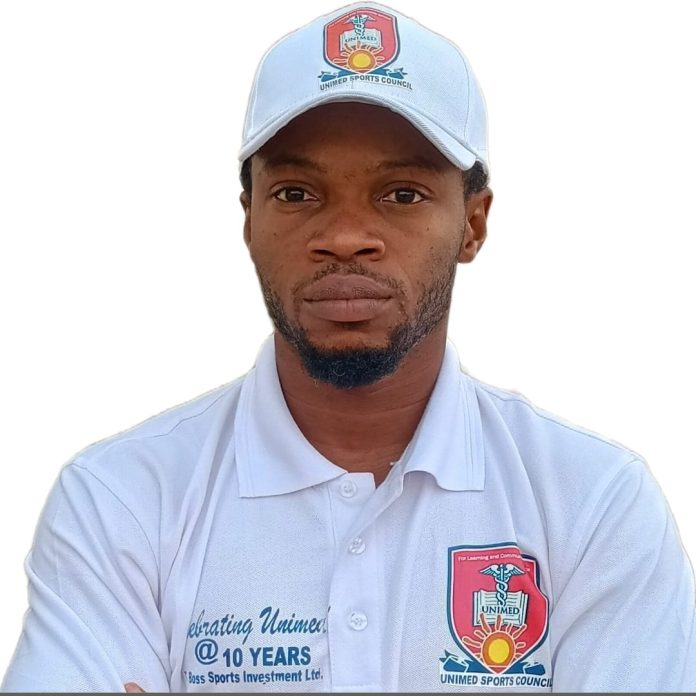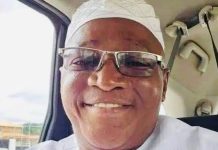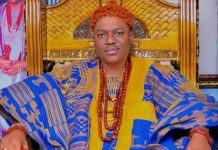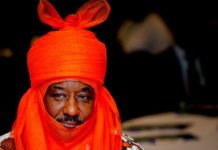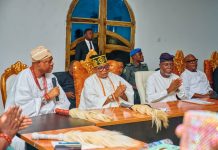
Sports has long been a powerful tool for national pride and identity. For a country like Nigeria, blessed with abundant young talent, the challenge is not a lack of potential but the absence of a structured system for talent identification and development. One key solution is the integration of university sports councils into the activities of state sports councils, creating a seamless pathway for talent progression.
This approach, successfully employed by first-world nations such as the USA and China, has yielded incredible results on the global stage. Notable Olympic medalists, nurtured through university programs in these countries, provide evidence of the efficacy of such collaborations. As a sports coach, I strongly advocate for Nigeria to adopt a similar model, which can unlock our nation’s sporting potential and elevate our performance in national and international events.
THE ROLE OF UNIVERSITIES IN PRODUCING WORLD-CLASS ATHLETES
In the USA, universities are at the heart of the nation’s sports development system. The NCAA (National Collegiate Athletic Association) governs collegiate sports and provides a competitive platform for student-athletes. This system has produced numerous Olympic champions, including:
Michael Phelps: The most decorated Olympian in history with 28 medals, Phelps trained at the University of Michigan, balancing his academic pursuits with a rigorous swimming program.
Carl Lewis: The legendary sprinter and long jumper, with nine Olympic gold medals, honed his skills at the University of Houston.
Allyson Felix: The most decorated female Olympian in track and field, Felix trained at the University of Southern California (USC), where she transitioned from collegiate to professional athletics seamlessly.
In China, universities work in tandem with state and national sports systems to develop elite athletes. Their integration has been pivotal to China’s rise as a global sports powerhouse. Examples include:
Su Bingtian: Asia’s fastest sprinter and an Olympic finalist, who trained at Jinan University while benefiting from China’s structured sports ecosystem.
Zhang Ning: A two-time Olympic gold medalist in badminton, Zhang was developed through a system linking university sports programs with national sports institutions.
Sun Yang: The Olympic gold medalist in swimming, who studied at Soochow University, was nurtured through a system that coordinated his university training with national-level programs.
These examples illustrate how university programs, when integrated with broader sports councils, can consistently produce world-class athletes.
THE NIGERIAN CONTEXT: GAPS AND OPPORTUNITIES
In Nigeria, universities operate largely in isolation from state sports councils, leading to a fragmented sports development structure. While intercollegiate competitions like the Nigerian University Games Association (NUGA) Games showcase exceptional talent, there is often no pathway for these athletes to transition to state or national levels. This disconnect results in a significant loss of potential. Talented athletes graduate without being scouted or supported, while state sports councils struggle to identify and nurture athletes for national representation.
THE CASE FOR INTEGRATION
The integration of university sports councils with state sports councils offers several benefits:
- Enhanced Talent Identification
Universities attract athletes from across the country, creating a centralized talent pool. By collaborating with universities, state sports councils can identify and recruit athletes who have already received foundational training. - Structured Pathways
Collaboration ensures that athletes receive consistent support as they progress from university-level sports to state and national representation. This eliminates the gaps that currently hinder talent development. - Resource Optimization
Universities often possess modern sports facilities, experienced coaches, and sports scientists. These resources can be shared with state sports councils to enhance athlete development. - Increased Representation
Athletes nurtured through an integrated system are more likely to succeed at state and national competitions, strengthening Nigeria’s overall performance.
LESSONS FROM THE USA AND CHINA
The USA and China offer valuable lessons on how universities and state sports systems can work together:
USA: Universities like Stanford, the University of Michigan, and the University of Oregon have established themselves as athlete development hubs. Their close ties with state and national sports programs ensure that top athletes transition seamlessly from collegiate to professional and international stages.
China: The integration of universities like Jinan University and Tsinghua University into the national sports framework has created a pipeline for talent progression. This collaboration has contributed to China’s dominance in sports like swimming, gymnastics, and badminton.
By adopting these models, Nigeria can create a unified system that leverages the strengths of both universities and state sports councils.
IMPLEMENTATION STRATEGIES
To achieve this integration, the following steps should be taken:
- Policy Development
The National Sports Commission and States’ Ministries of Youth and Sports Development should develop policies mandating collaboration between universities and state sports councils. These policies should outline roles, funding mechanisms, and performance metrics. - Joint Competitions
Competitions like the NUGA Games should be restructured to serve as scouting platforms for state and national teams. State sports councils should actively participate in these events to identify talent. - Shared Resources
Universities and state sports councils should establish agreements to share facilities, coaching expertise, and sports science resources. - Athlete Scholarships
State sports councils can provide scholarships for outstanding university athletes, ensuring they can pursue both academic and athletic goals. - Monitoring and Evaluation
A robust system for tracking athlete development from university to state and national levels should be implemented to ensure accountability and measurable outcomes.
THE POTENTIAL IMPACT
Integrating university sports councils with state sports councils can transform Nigeria’s sports landscape:
Olympic Success: By replicating the USA and China’s models, Nigeria can produce more Olympians who win medals and bring pride to the nation.
Economic Growth: A thriving sports sector creates jobs, attracts investments, and boosts tourism, contributing to national development.
Youth Empowerment: Structured sports pathways provide young Nigerians with opportunities for personal growth, education, and career development.
A CALL TO ACTION
Nigeria has the talent and potential to excel in sports, but achieving this requires bold and innovative strategies. Integrating university sports councils with state sports councils is a proven approach that can unlock this potential. Stakeholders in sports and education must collaborate to create a unified system that nurtures talent from the grassroots to the global stage.
It has been 29 years since Nigeria last won an Olympic gold medal; therefore, let us draw inspiration from the successes of the USA and China, whose Olympic medalists serve as proof of what is possible. By taking decisive action, Nigeria can become a sporting powerhouse, inspiring future generations and bringing pride to the nation.
Coach Dare Bada is a certified Sports Coach, Sports Psychologist and Exercise & Sports Scientist. He is currently the Secretary, University Sports Council, University of Medical Sciences, Ondo.
Views expressed by contributors are strictly personal and not of Precision Online Newspaper.


